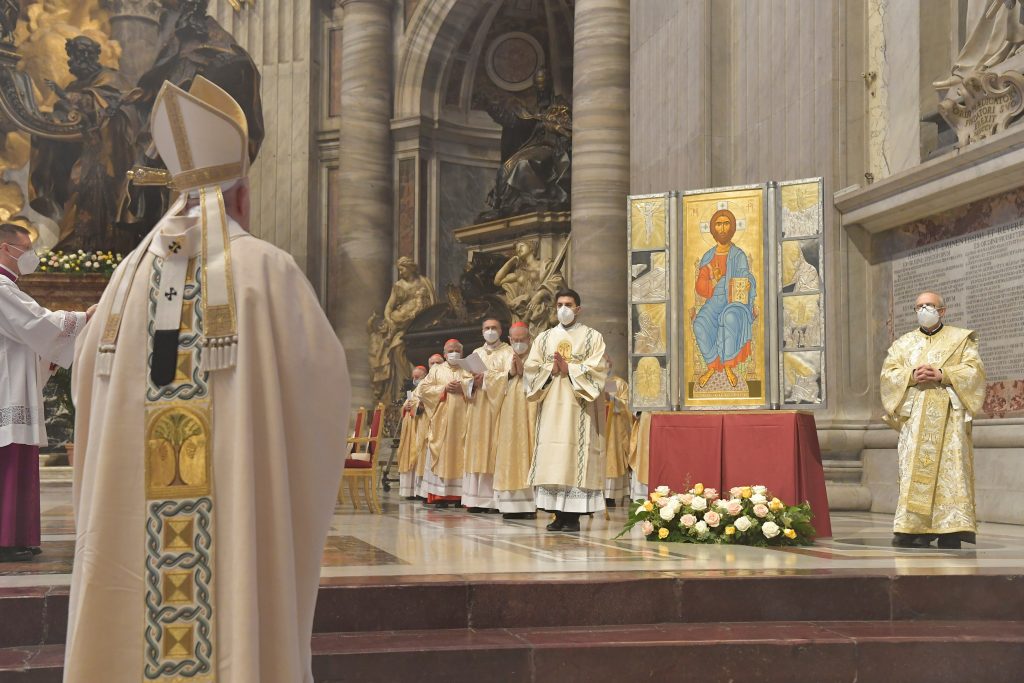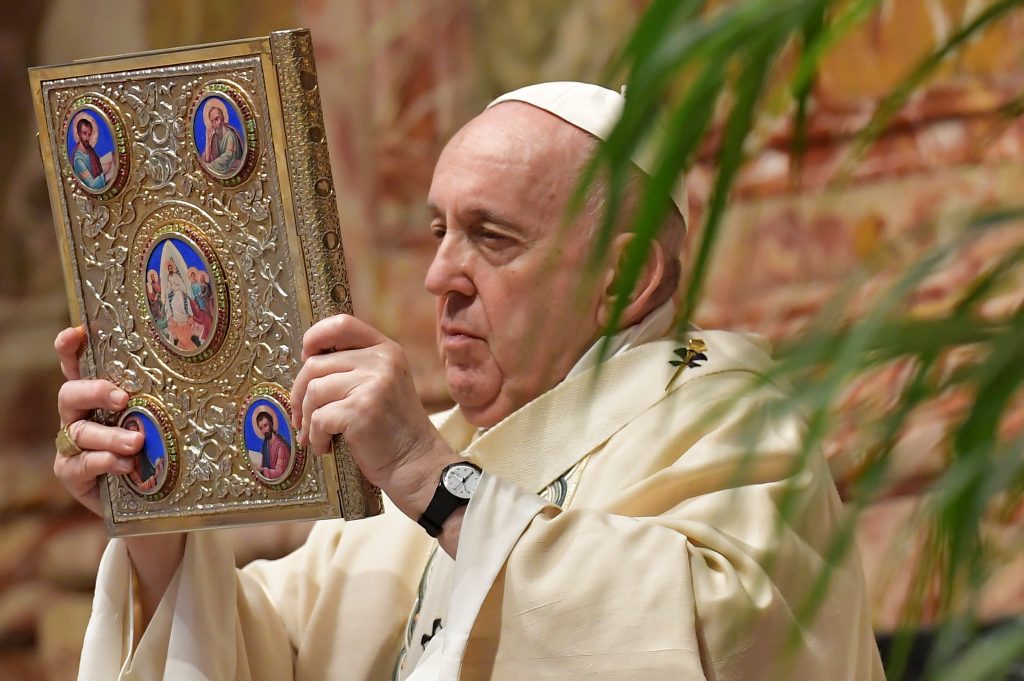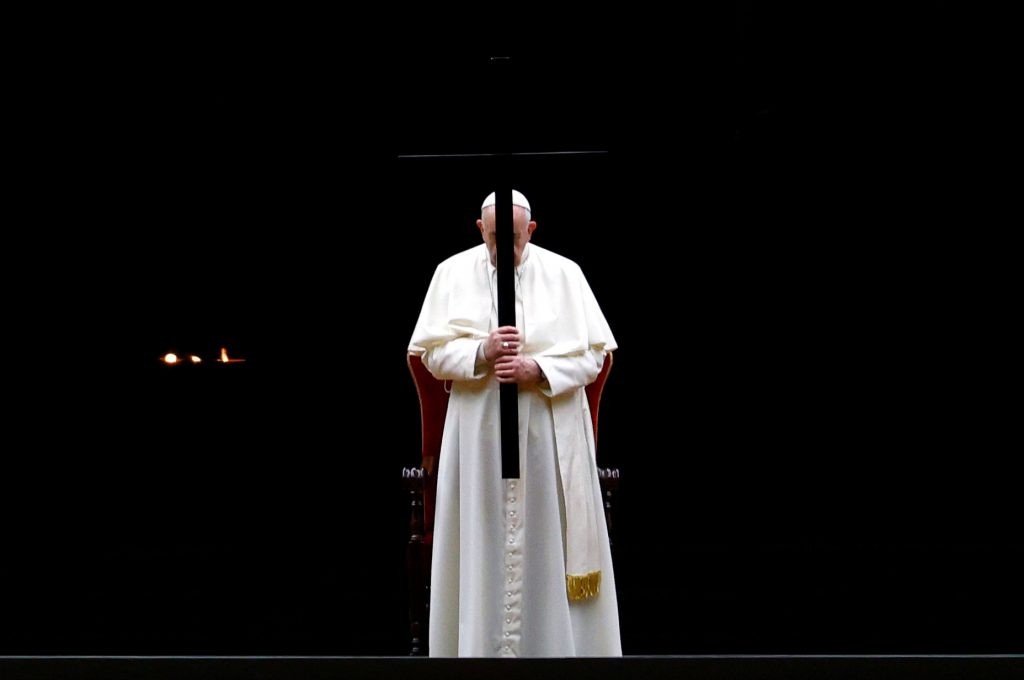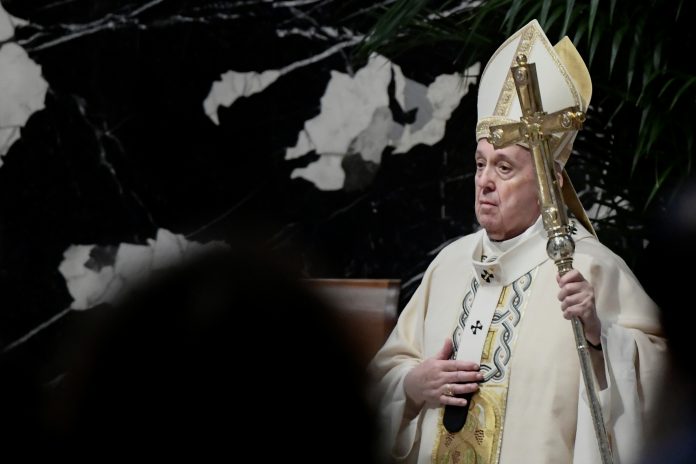Pope Francis urged countries to quicken distribution of COVID-19 vaccines, particularly to the world’s poor, and called armed conflict and military spending during a pandemic “scandalous.”
After saying Easter Mass on April 4, the pontiff read his “Urbi et Orbi” (to the city and the world) message, in which he traditionally reviews world problems and appeals for peace.
“The pandemic is still spreading, while the social and economic crisis remains severe, especially for the poor,” he said.
“Nonetheless – and this is scandalous – armed conflicts have not ended and military arsenals are being strengthened,” added the pope.
Pope Francis, who would normally have given the address to up to 100,000 people in St. Peter’s Square, spoke to fewer than 200 inside the Saint Peter’s Basilica.
The square was empty except for a few police officers enforcing a strict three-day national lockdown.
The pope asked God to comfort the sick, those who have lost a loved one, and the unemployed, urging authorities to give families in greatest need a “decent sustenance”.
He praised medical workers, sympathized with young people unable to attend school, and said everyone was called to combat the pandemic.
“I urge the entire international community, in a spirit of global responsibility, to commit to overcoming delays in the distribution of vaccines and to facilitate their distribution, especially in the poorest countries,” he said.

Call for hope
Pope Francis urged the faithful not to give up hope despite all the challenges, including the coronavirus pandemic.
He underscored how Easter gives the Christian world hope that does not disappoint, that is “Jesus who was crucified has risen.”
The pope noted the difficult realities the world has been encountering, including the spread of COVID-19 and the social and economic crisis that hit the poor.
The pope, however, said the Risen Christ gives hope and comfort for those suffering from the pandemic, the sick and those who have lost a loved one.
He prayed that the Lord might “sustain the valiant efforts of doctors and nurses” even as he stressed that everyone, especially the vulnerable, needs assistance and has a right to care.
He said he is praying that Christ might “inspire public authorities to act so that everyone, especially families in greatest need” can be provided with help” to avoid sliding into poverty.
The pope cited the psychological weight of the pandemic on young people, who are often forced to stay at home without attending school or visiting friends in person.
The pontiff recognized how in so many places Christians have celebrated Easter under severe restrictions.
He prayed that these, and all restrictions on freedom of worship and religion worldwide, may be lifted so all are allowed to pray and praise God freely.

‘Instruments of death’
Pope Francis, who has often called for disarmament and a total ban on the possession of nuclear weapons, said: “There are still too many wars and too much violence in the world! May the Lord, who is our peace, help us to overcome the mindset of war.”
Noting that it was International Awareness Day against anti-personnel landmines, he called such weapons “insidious and horrible devices … how much better our world would be without these instruments of death!”
In mentioning conflict areas, he singled out for praise “the young people of Myanmar committed to supporting democracy and making their voices heard peacefully.”
More than 550 protesters have been killed since a Feb. 1 military coup in Myanmar, which the pope visited in 2017.
Pope Francis called for peace in several conflict areas in Africa, including the Tigray region of northern Ethiopia and the Cabo Delgado province of Mozambique.
He said the crisis in Yemen has been “met with a deafening and scandalous silence.”
He appealed to Israelis and Palestinians to “rediscover the power of dialogue” to reach a two-state solution where both can live side by side in peace and prosperity.
Pope Francis said he realized many Christians were still persecuted and called for all restrictions on freedom of worship and religion worldwide to be lifted.

He cited migrants fleeing from war and extreme poverty, praying that may “light of the risen Jesus be a source of rebirth” for them.
He cited countries like Lebanon and Jordan that showed “concrete signs of solidarity and human fraternity” for receiving refugees fleeing violence in neighboring Syria.
Speaking about Libya, Pope Francis expressed hope for an end to the decade of bloodshed and unrest.
He encouraged all parties involved in conflicts around the world to “commit themselves” to end it and allow “war-weary peoples to live in peace” and rebuild their lives and communities.
The pope urged the faithful to pray that the Lord “grant peace and security” so that the world can “embrace its calling” to be a place where “all can see one another as brothers and sisters.”
He concluded his message with a call for prayers so that everyone “remember that we have been healed by the wounds of Christ and in light of the Risen Lord, our sufferings are now transfigured … where there was death, now there is life.” – with a report from Reuters









